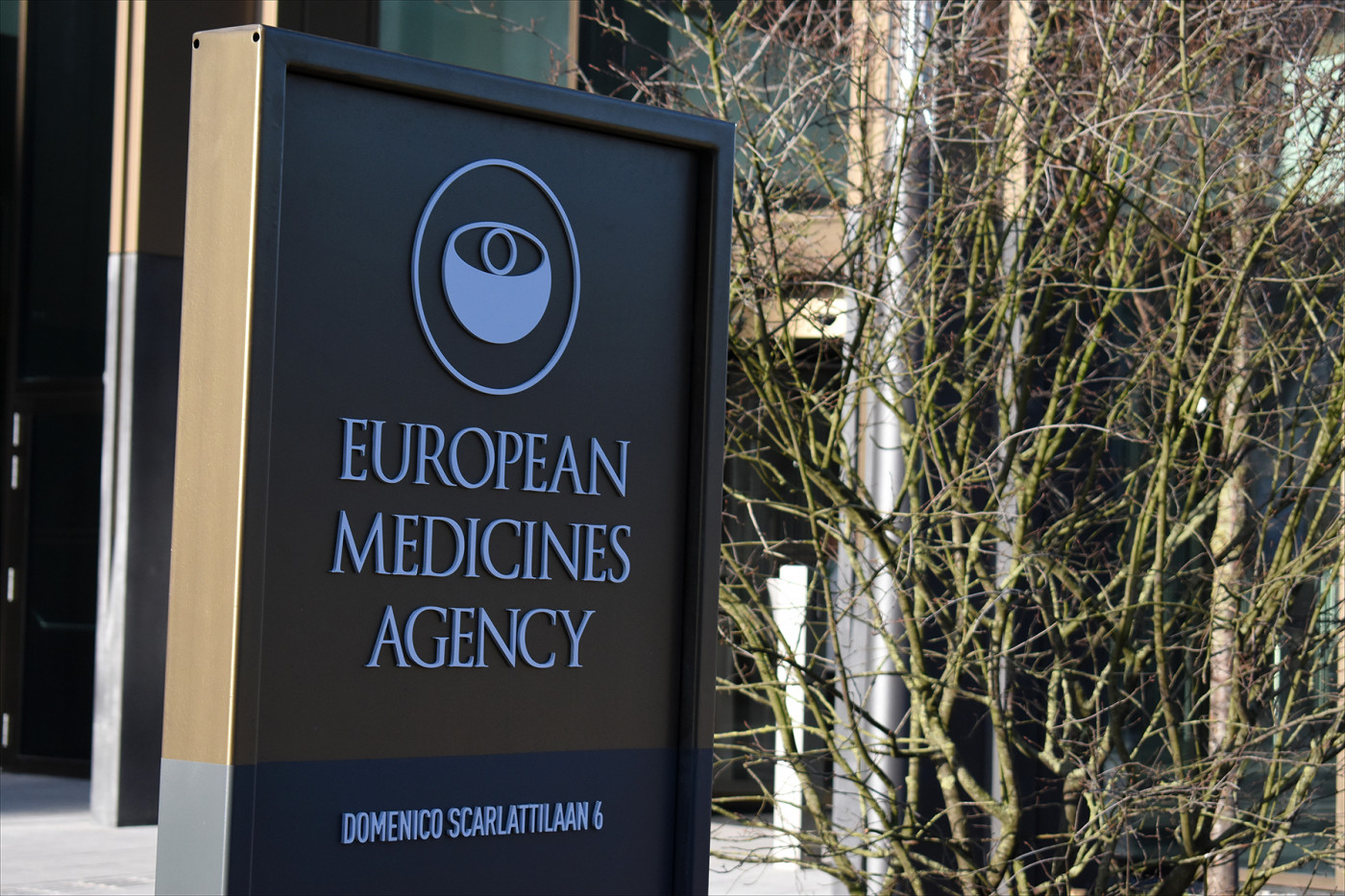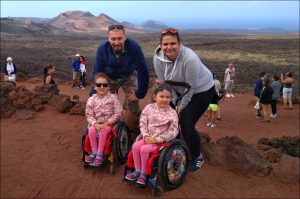Roche Starts Global Early Access Program for SMA Therapy Risdiplam in Europe
Written by |

EMA's new headquarters in Amsterdam. (Photo by Larry Luxner)
Roche has kicked off a worldwide early access program for its experimental therapy risdiplam by making it available to Europeans with the most serious forms of spinal muscular atrophy (SMA).
Europeans with SMA type 1 will be able to get it immediately, Roche told SMA News Today in a phone interview. Those with type 2 can obtain it in about six months.
It also announced that the oral therapy will be priced very competitively should it be approved by the U.S. Food and Drug Administration. The FDA’s decision is expected on or before May 24.
“We aim to underwhelm with our price” for risdiplam, Bill Anderson, CEO of Roche Pharmaceuticals, was reported as saying at the recent JP Morgan Healthcare Conference in San Francisco.
The Swiss multinational has been working with the FDA on the terms of an early access program in the United States, according to Justin Hurdle, a spokesman for Genentech, Roche’s U.S. subsidiary.
Once the parameters are set, an American program will begin, said Hurdle, who did not offer a potential time frame.
One of the first organizations to hail the risdiplam compassionate use decision was Britain’s Treat SMA, which said in an announcement that Roche “has made a bold step towards eradicating this severe disease across the world …. we applaud that the company has keenly listened to the patient voice when designing the [early access] program.”
SMA patients worldwide, “and their near and dear ones, very much appreciate this invaluable initiative,” said Kacper Rucinski, a United Kingdom-based board member of SMA Europe. “We also thank Roche for working closely with SMA Europe throughout the process,” added Rucinski, who has a daughter with SMA.
Roche has yet to file a risdiplam review request with the Amsterdam-based European Medicines Agency (EMA), which approves therapies on the continent, but that submission is expected soon.
The company’s confirmation that it is starting an early access program for risdiplam comes two weeks after Novartis announced a similar program for its FDA-approved SMA gene therapy Zolgensma (onasemnogene abeparvovec-xioi). The therapy, which carries a U.S. retail price of $2.125 million and which has yet to receive EU approval, was granted FDA approval in May 2019.
‘High unmet medical need within the community’
Biogen, which makes the world’s first approved SMA treatment, Spinraza (nusinersen), started an early access program in 2016, the year the FDA signed off on the therapy. In June 2017, the EU approved Spinraza as well.
“This is very important because a number of patients — especially older ones — cannot get Spinraza due to past spinal fusion operations,” said Patryk Marczuk, a volunteer with Poland’s Fundacja SMA, who has twin girls with SMA type 3.
“Of course, the countries involved must have the legal prerequisites to launch the compassionate use program, so this will take some administrative work,” Marczuk said by phone from Warsaw. “But this is the hope for all patients who don’t have access to Spinraza at the moment.”
News of risdiplam’s early access program came in a letter that Roche executive Fani Petridis sent to SMA Europe and Treat SMA.
The company acted because “while there have been very important treatment advances for patients with SMA in the last few years, we recognize that there continues to be high unmet medical need within the community,” said Petridis, who added that “patients experiencing life-threatening or severe conditions may not have access or be eligible to [obtain] satisfactory treatments or to [participate in] ongoing clinical trials.”
Type 1 SMA patients in countries that have concluded an early access agreement with Roche will be able to obtain access to risdiplam through a doctor’s request, said Petridis, who directs Roche’s global SMA patient partnership program.
Since type 2 patients can also face life-threatening situations, the letter said, Roche will provide them with risdiplam after filing an application for regulatory approval in their country.
EMA filing submission anticipated this year
“This means that in participating countries within the European Union, the program is already available for patients with type 1 SMA and will expand to patients with type 2 SMA upon filing of our Marketing Authorization Application to the European Medicines Agency, which is currently planned for mid-2020,” Petridis said.
SMA develops when patients are unable to produce enough of the muscle-controlling SMN protein.
Risdiplam is a splicing modifier: a therapy that changes the way pre-mRNA molecules are spliced or edited. Scientists developed it to create the full-length SMN mRNA the body needs to generate a functional SMN protein. Clinical trials have shown that risdiplam increases these protein levels in SMA patients.
Roche researchers created risdiplam not only to bypass the blood-brain barrier so it could reach the central nervous system, but also to disperse throughout the body, which the team thought might be a better approach to treating the muscle-wasting disease.
Roche has been testing risdiplam for several years in four clinical trials: FIREFISH (NCT02913482), SUNFISH (NCT02908685), JEWELFISH (NCT03032172) and RAINBOWFISH (NCT03779334). The company reported its latest SUNFISH results in November, which showed that risdiplam led to significant improvements in motor function among SMA type 2 and 3 patients.
Based on these and previous results, the FDA agreed two weeks later — on Nov. 25 — to the fast-track review of risdiplam. A year earlier, Roche had reported that risdiplam led to significant muscle-function improvement among 21 SMA type 1 babies, from 1 to 7 months old, something not seen in the natural progression of SMA.
A dramatic finding from the FIREFISH trial was that of the six babies who were able to sit, all did so without support — something that SMA type 1 babies never achieve, researchers said. In addition, after 12 months of treatment with risdiplam, none of the 19 infants who survived needed permanent ventilation or lost their ability to swallow.





